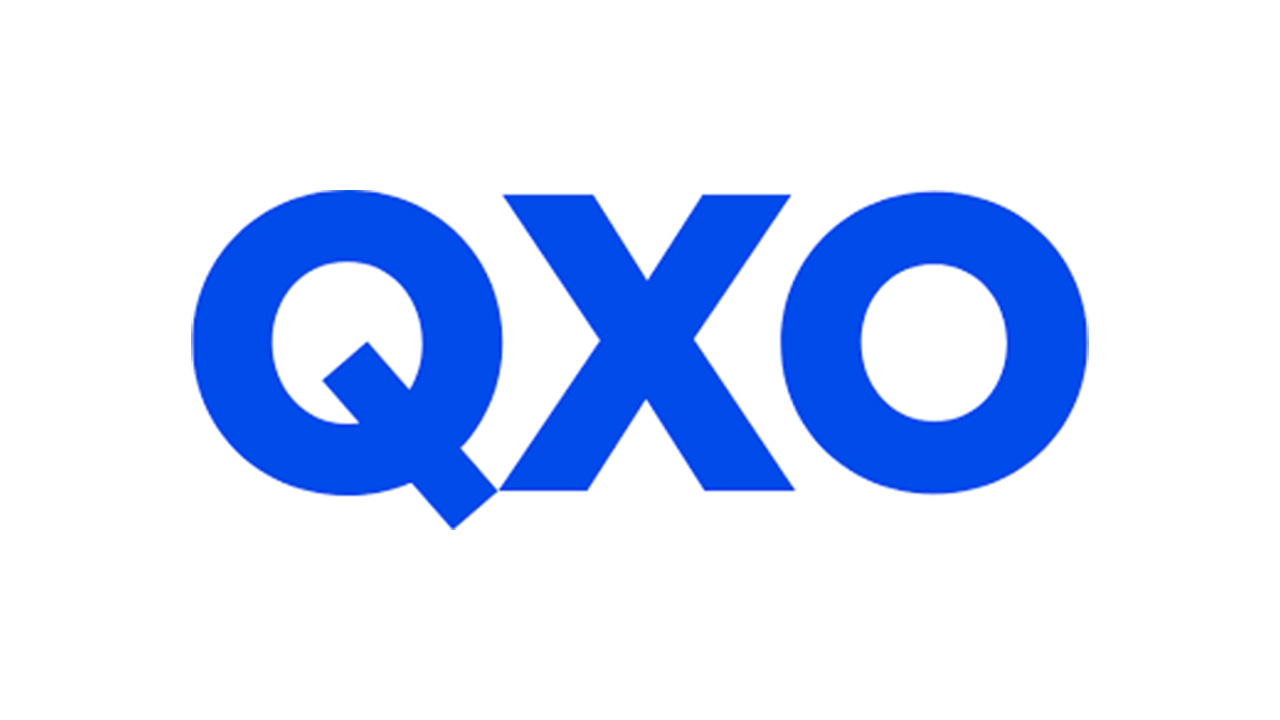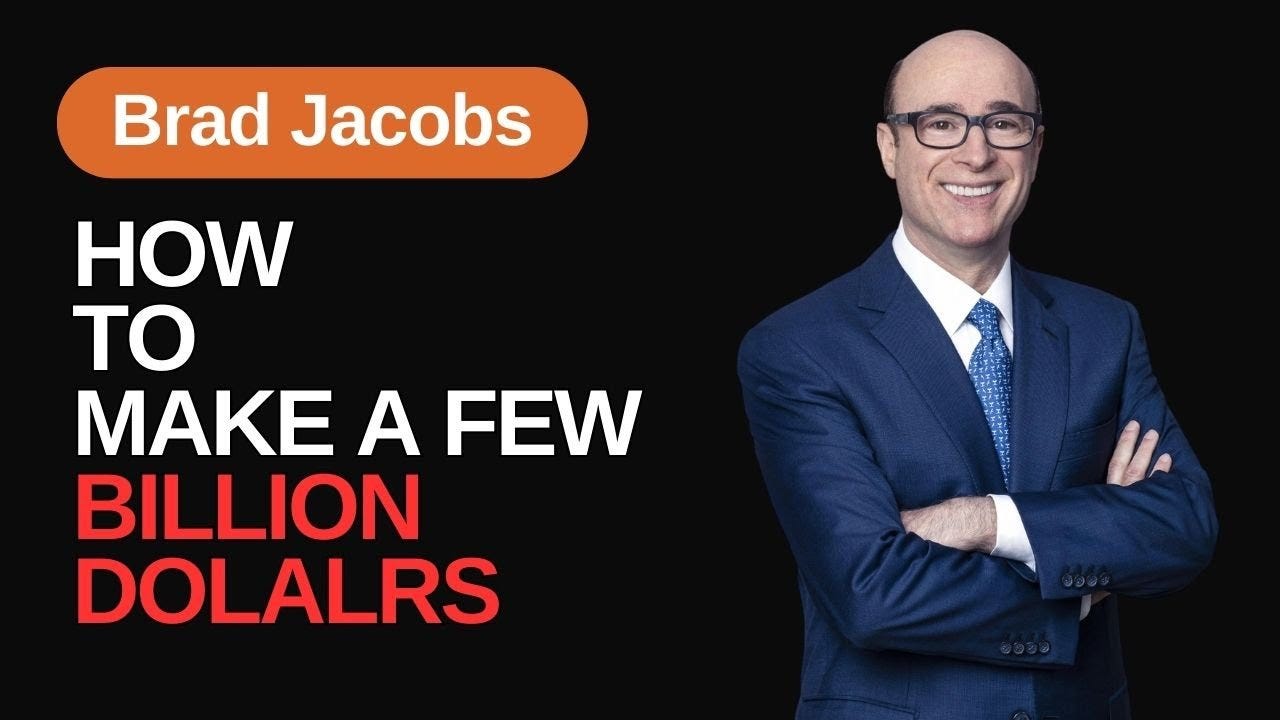QXO ($QXO) | Brad Jacob's Next Empire
This article is a full analysis of QXO. A company recently purchased by one of the most successful business operators of all time. Brad Jacobs.
In 2023 QXO only had $53 million in revenue, with a market cap of over $6 billion. So why is the company worth paying attention to? It all comes down to their CEO, Brad Jacobs. Jacob’s has turned his last 3 businesses into multi-billon dollar successes. Now he is eying the building supply industry and and raise $5 billion to get started. I expect that same Midas touch that has lead to 50x and 100x returns.
Snapshot Summary
QXO is searching for their first acquisitions and has $5 billion in the bank to get it done. Here is what Brad Jacobs expects to do over the next 10 years. (Hint: It looks incredible.)
Now back to Jacobs plan for QXO.
Buy great building supply companies in the US and Europe.
Combine the businesses and add tech to improve efficiency.
Grow the company to $50 billion per year in revenue in 10 years.
I am confident Jacobs can make this happen because he has done it more than once before. Assuming he hits $50 billion in revenue I expect the company to generate $3 billion in FCF in 2035. At an 18x multiple this company has an 830% upside or 25.5% CAGR over the next 10 years from the base of $14 per share. If that growth were to continue for 5 more years the return would be a whopping 3,000%.
Brief History of Brad Jacobs Success
1989
Jacobs first big company was United Waste Systems. He consolidated small waste collection companies that had overlapping routes in rural areas. In 1992 he took the company public and in 1997 Jacobs sold United Waste Systems to USA Waste Services Inc. (now Waste Management, Inc.) for $2.2 billion.
1997
His next hit came when he formed United Rentals. He grew the company by consolidating equipment rental dealers in North America. He took the company public in December 1997 at about $14 per share. If you had invested at IPO you would have now over 50x your money.
2011
Jacobs invested $150 million in XPO, a transportation and logistics provider, buying about 71 percent of the company. Since then XPO has split into 3 companies. XPO, GXO, and RXO with combined market caps of $23.7 Billion. This is over a 110x the initial investment valuation in 2011.
Brad Jacobs is one of the best operators ever. In fact he recently wrote a book title “How to Make a Few Billion Dollars”. This is the type of person I want to put my money behind.
The Plan with QXO
In June 2024, Jacobs founded QXO to merge the $800 billion building supply industry in the USA and Europe. To start he raised $5 billion in capital to buy large, quality businesses. with fantastic management that are open to acquisition at a fair price.
Once purchased Jacobs will take the same play book from XPO. He will cut overhead costs and add tech to improve efficiency. Both will allow them to deliver a higher quality product for their customers and grow. I expect the first buy out in the next 12 months since they already have a list of potentials.
Jacobs said the goal with QXO over the next 10 years is to achieve the $50 billion per year in revenue mark. A tall order, but he has delivered extraordinary results like this not once, but three times. I like those odds.
Valuation
Now, how to value a company with only promises. If we assume Jacobs goal of $50 billion in revenue happens then QXO is simple to value. The only other assumption I need is on their FCF margins. To find a good proxy I looked at current companies in the industry.
Taking the average median FCF margin of 101 companies in the building supply industry I get 4.61%. I expect QXO will run with a better level of efficiency with higher margins than most. The margins will depend on the type of companies they buy, but a 6% margin is within reason. This would result in the following FCF in 2035.
2035 FCF: $3 Billion
On that FCF I expect this company to get a premium to the market which will likely average a 16x-17x multiple. For QXO I will assume 18x multiple which would result in the following share price and market cap.
Share Price: $131.90
Market Cap: $54 Billion
These levels imply more than an 830% upside from current levels or a 25.5% CAGR from the share price of about $14. If that intrinsic growth were to continue for 5 more years your return would be about 2,900%. Like other companies I analyze, QXO could have some incredible returns.
This company represents the newest position in my portfolio. It was attractive enough that I sold my position in Boeing. While Boeing is still attractive at current levels it was worth selling something cheap to buy something even cheaper. Especially when I could get behind an operator like Brad Jacobs. This is not something I will do often but I felt QXO was special enough that I could not pass it up.
The biggest risk to my thesis that I see is how long it will take for the buy outs to start. If they drag out then things could get interesting.
Disclaimer: This content is for informational and entertainment purposes only. The opinions expressed are my own and not professional financial advice. I do not know your personal financial situation. Please do your own research and consult with a licensed financial advisor before making any investment decisions. Investing involves risk, including the potential loss of principal.
Check out some of my other articles!
Company Tickers: BLD, BLDR, CRH, EXP, JHX, KNF, MLM, NWPX, SMID, SUM






Kyler. This case ($QXO) seems more like a turnaround case as $CPS, $IHS, or we may say its a Venture capital case? Thanks
Last November, QXO (QXO) made an offer to acquire Beacon Roofing Supply (BECN).
QXO’s CEO, Brad Jacobs, had approached Beacon’s leadership 15 times throughout the year, but each attempt was either ignored or rejected. It wasn’t until mid-January that the proposal became public.
In response to these rejections, Jacobs took his $11 billion takeover bid directly to shareholders, offering to purchase shares at a premium—approximately $124 per share.
This hostile tender offer triggered an immediate countermeasure from Beacon’s management: a swift implementation of a poison pill.
How this unfolds remains uncertain. However, if QXO is determined to acquire Beacon, the poison pill could significantly increase the final price they must pay.
For those unfamiliar with a poison pill, it’s a defensive strategy that allows existing shareholders to buy additional shares at a discount if a hostile bidder surpasses a certain ownership threshold. This tactic dilutes all shareholders, including the hostile bidder, forcing them to acquire even more shares at a higher cost. As a result, QXO could end up paying well beyond its initial offer.